All North Korea’s nukes aimed at US not ‘brethren’ South Korea: Pyongyang
North Korea says all of its nuclear weapons are aimed at the US not Pyongyang’s “brethren” in South Korea, asserting that its nuclear program will be non-negotiable in the coming talks with Seoul, as the two foes have just begun their first official dialogue in more than two years amid escalating tension over the North’s controversial weapons program.
“All our weapons including atomic bombs, hydrogen bombs and ballistic missiles are only aimed at the United States, not our brethren, nor China and Russia,” said Pyongyang’s chief negotiator Ri Son Gwon on Tuesday, as the two sides agreed earlier in the day to hold talks aimed at resolving problems and averting accidental conflict.
The fresh talks were being held behind closed doors at the Peace House in the Joint Security Area in the truce village of Panmunjom at the demilitarized zone (DMZ) between the divided countries.
Ri, who is also the chairman of the North’s Committee for the Peaceful Reunification of the Fatherland, warned in his closing remarks that Pyongyang would absolutely not discuss its nuclear weapons in future negotiations with Seoul.
“This is not a matter between North and South Korea, and to bring up this issue would cause negative consequences and risks turning all of today’s good achievement into nothing,” he added, after 11 hours of inter-Korean talks.
In a joint statement issued at the end of the meeting, Pyongyang also made a “strong complaint” after Seoul proposed negotiations to denuclearize the Korean Peninsula.
The two Koreas have long had strained ties. They have been separated by a heavily militarized border since the three-year-long Korean War came to an end in 1953. The conflict ended with an armistice rather than a formal peace treaty, leaving many families separated at the two sides.
The South believes improved inter-Korean relations and a series of steps agreed on Tuesday could be able to pave the way for negotiating a “fundamental resolution” of its northern neighbor’s nuclear issue in the future, the South’s Unification Ministry said in a separate statement.
“We will closely coordinate with the United States, China, Japan and other neighbors in this process,” it added.
In the joint statement, the North also pledged to send a large delegation to next month’s Pyeongchang Winter Olympics in the South, including athletes, high-ranking officials, a cheering squad, art performers, reporters and spectators.
Meanwhile, the International Olympic Committee (IOC), in a statement, praised the North’s decision to participate in the Winter Olympics in the South, calling the move a “great step forward.”
The organization added that it would wait for the official reports and proposals of Tuesday’s meeting and then it would “discuss these proposals in particular as far as the participation, the number and names of athletes from” both countries, “ and the format of their participation (flag, anthem, ceremonies, etc.) are concerned.”
Tensions have been running high on the Korean Peninsula over the past year, which saw several missile and nuclear launches by Pyongyang as well as an exchange of military threats between US President Donald Trump and North Korean leader Kim Jong-un.
Pyongyang defends its military program as a deterrent against potential foreign aggression. The North views joint war games between the US and its neighbors as a rehearsal for war, and has repeatedly urged South Korea and Japan to stop such drills.
Russia and China, which are viewed as allies of the North, have welcomed the upcoming inter-Korean negotiations.
The UN and the US have imposed a series of sanctions against Pyongyang over its nuclear and missile programs in recent months.
On December, the UN Security Council (UNSC) unanimously imposed new sanctions on North Korea for a recent intercontinental ballistic missile (ICBM) test, seeking to further limit its access to refined petroleum products and crude oil.
The US-drafted UNSC resolution seeks to ban nearly 90 percent of refined petroleum exports to North Korea by capping them at 500,000 barrels per year.
North Korea has already demanded a halt to what it called “brutal sanctions” imposed by the UNSC, saying the previous bans imposed after Pyongyang’s sixth and most powerful nuclear test on September 3 constitute “genocide.”
VIDEO | Iran-Syria: For Resistance
Qassam Brigades claims killing 3 Israeli troops in northern Gaza
More alive than ever: Sayyed Hassan Nasrallah's legacy grows stronger in martyrdom
Occupation of Syria’s highest peak Mount Hermon part of ‘Greater Israel’ project
Iran: Syrian people will decide their future without foreign interference
IRGC says Iran’s power exceeds borders, warns enemies to adjust themselves
Dozens detained, several wounded in Israeli raids in West Bank
‘Ethnic cleansing’: Hamas blasts Israeli attacks on Gaza hospital amid intl. silence


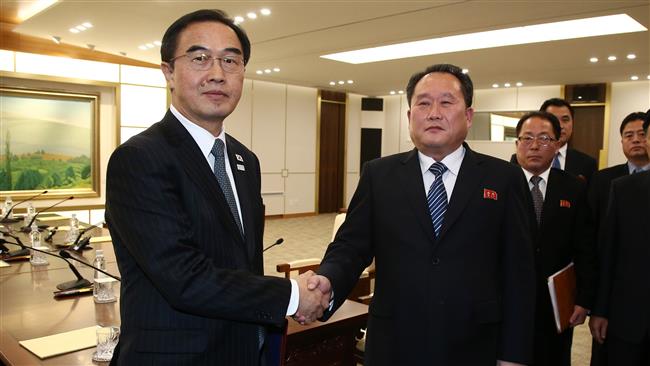



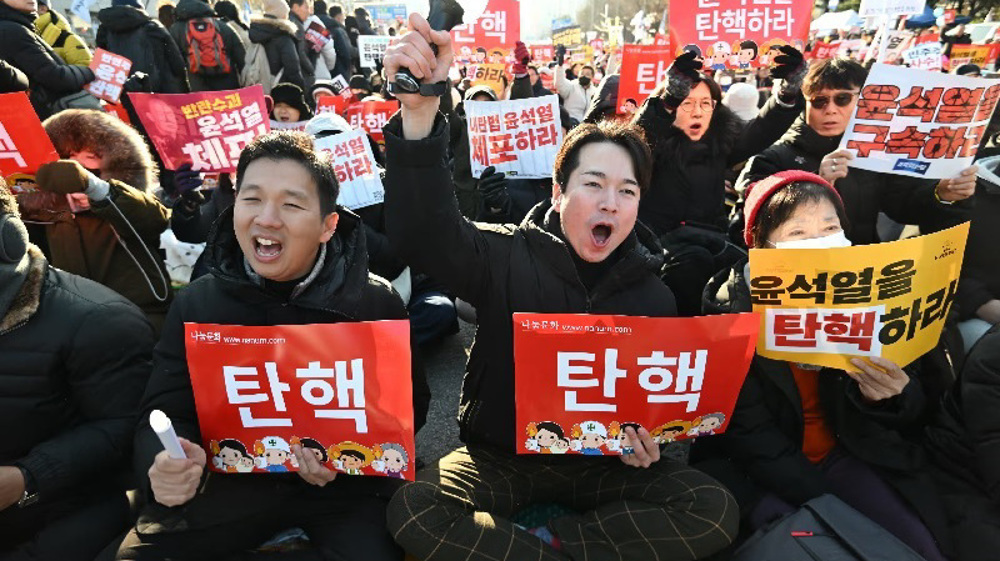
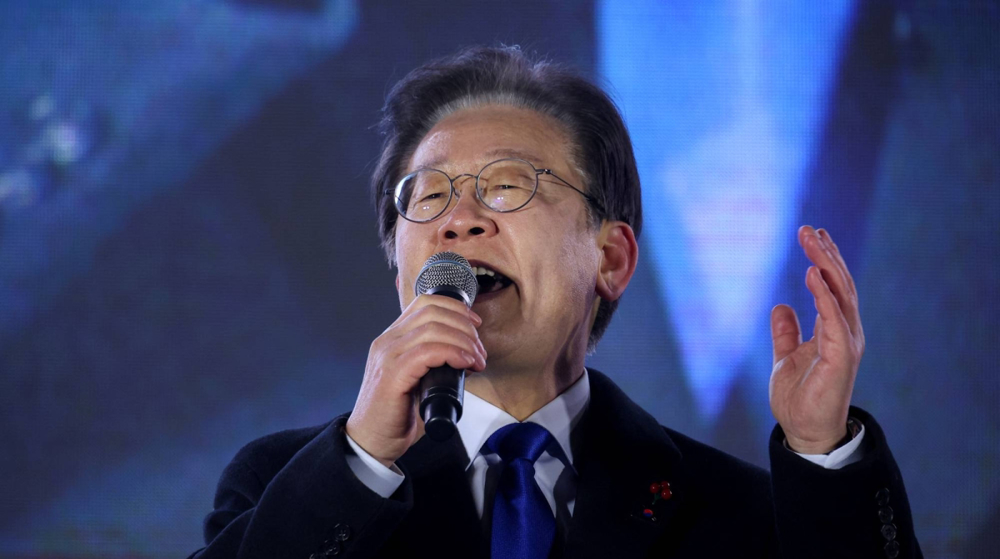
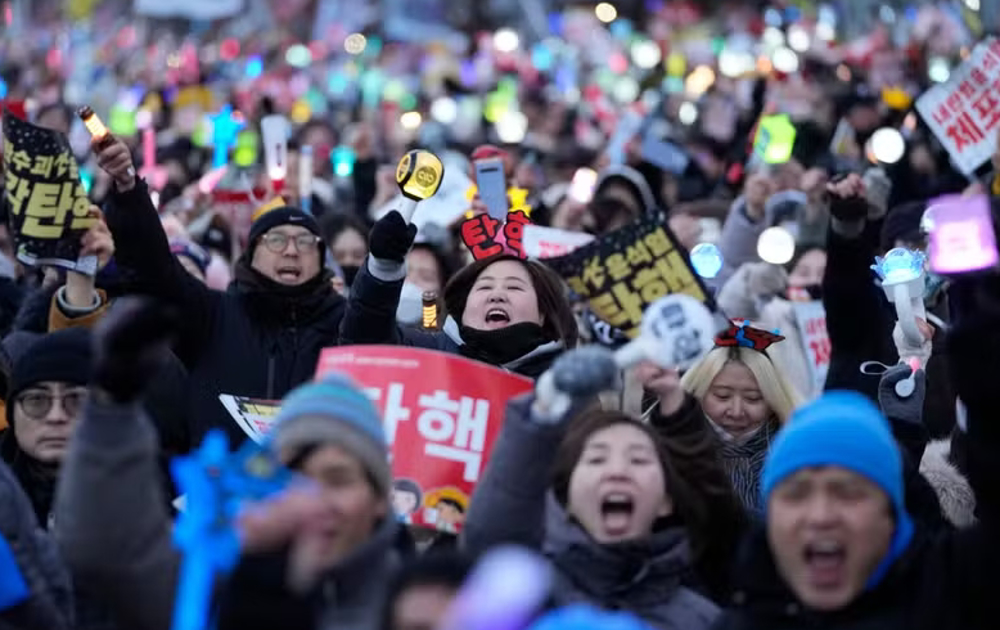



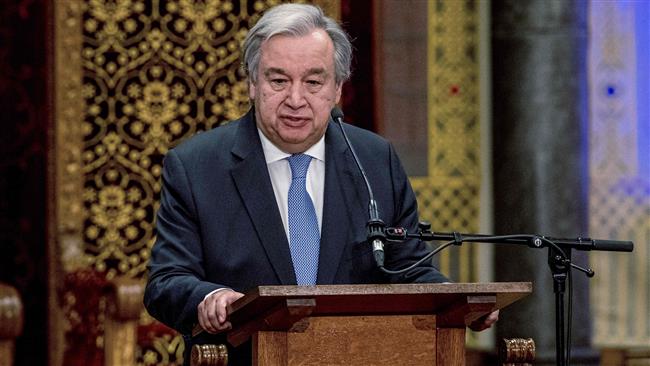
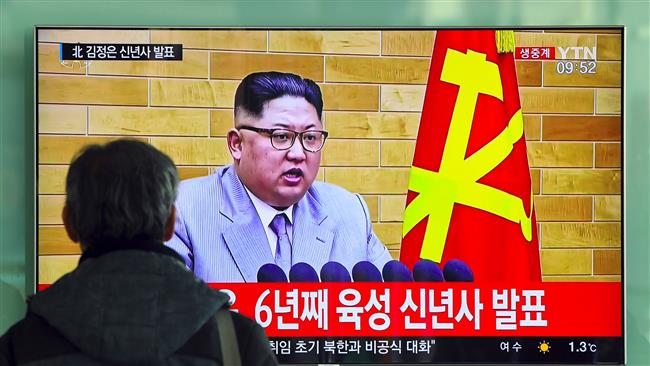
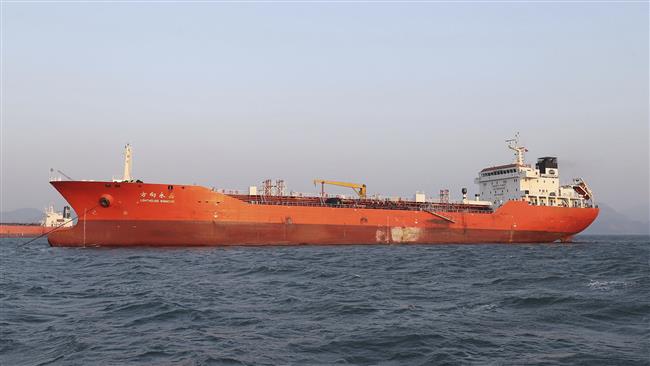

 This makes it easy to access the Press TV website
This makes it easy to access the Press TV website